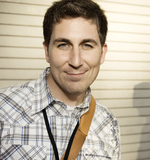 In my continuing attempt to interview leaders that I admire, today’s interview is with Tim Stevens of Granger Community Church. You can follow Tim on Twitter HERE.
In my continuing attempt to interview leaders that I admire, today’s interview is with Tim Stevens of Granger Community Church. You can follow Tim on Twitter HERE.
Tim is an amazing leader. His strategic thinking and rational approach to ministry has no doubt made a huge Kingdom impact at Granger and through his well-read blog. Tim probably barely remembers it, but when we were a very young church Tim helped me think through some issues in leadership I was dealing with at the time. It was invaluable. Recently I had the chance to sit with Tim in a strategic meeting and saw firsthand the excellence with which he leads.
Here are 10 questions with Tim Stevens:
- When you were growing up, is this what you thought you would be doing vocationally? If not, what did you want to do?
When I was about 12 years old, I thought I would be doing something in ministry. In my church setting, that meant pastor, youth pastor, music pastor or missionary. So one of my pastors started grooming me to preach. We soon realized it wasn’t a gifting. I was grateful a few years later when I discovered I could use my leadership/administrative gifts in ministry.
2. What’s the most different job you’ve had from what you are doing now and how did that job help you with what you are doing now?
I washed dishes in a nursing home for a year as a teen. I learned that everyone has the same basic need—they just want someone to love and accept them.
3. Who is one person, besides Christ, who most helped to shape your leadership and how did they help you?
It has been many people, one-at-a-time, at different phases in my life. Lynda Wessel, a school teacher, who taught me early principles of leadership. My parents, who gave me opportunities to stretch myself and test my gifts. Lewie Clark who taught me about organic leadership. John Maxwell who challenged my beliefs and helped me break out of the trappings of legalism. Mark Beeson who continues to teach me about relational leadership.
4. Besides the Bible, what is one book that has most helped to shape your thought process in life and ministry?
Again, difficult to name one book, but I’m going to go with a book I read a few years ago by Andy Stanley…Seven Practices of Effective Ministry.
5. What are three words other people would use to describe your work style/ethic?
I don’t do well with self-assessment, so asked my team to answer this one. Their answer: “Relationship-driven, strength-finder, rhythm-runner”
6. What is your greatest strength in leadership?
Also from my team: “You coach, you don’t control. You become a student of the ‘individuals’ in your audience to bring out the best in them.”
7. What is your greatest weakness in leadership?
I’m an introvert and so initial relationship building is difficult for me. I don’t come across (to people I don’t know) as a warm-and-fuzzy guy, and sometimes this can be a hurdle in my leadership.
8. What is the hardest thing you have to do in leadership?
Lead up. Leading people above you while remaining 110% loyal and 0% manipulative may be the most difficult skill to refine. It’s very important to me and I work on it every day.
9. What is one misconception about your work you think people may have?
Many (outside of my close circles) think I’m an administrator. My job is about 10% administration and 90% leadership of people, strategy and direction. (It should be noted that even though I’m aware people have this misconception—it doesn’t bother me in the least. How others view me has no relation whatsoever to my effectiveness or self-image).
10. If you could give one piece of advice to young leaders from what you’ve learned by experience, what would it be?
Serve wholeheartedly in whatever position you are in. Don’t worry about a promotion or the position you wished you had or how much money you should be making or how the job you are doing is beneath you. Just serve faithfully, with a smile on your face, and God will use your work-ethic and attitude and move you in time. And you will learn a TON in the process, which will prepare you for the future He has for you.
Thanks Tim for this allowing us to continue to learn from you.
You can read my previous interviews with Ben Arment and Pete Wilson HERE and HERE.
How else should I attempt to interview?






Great stuff Ron! Thanks for the post!
Thanks Josh!
Once again thank you Ron for the interview with a great leader. I have learned a lot over the past several years from Tim. I was very impressed by Tim's answer to #8. I think that's something us Executive Pastors all have to work on. I'm sure he does it well. I don't know if Tim was the one that put me on to this or someone else, but you know the TV series West Wing? Well Leo McGary — Chief of Staff — is an Executive Pastor arch-type. Lots we could learn about how he related to #1 in that series.
Once again, thank you.
Blessings,
Dave
Tim is a great leader, not having to be in the senior position to make a big difference in the organization. I admire that.
Loving the interviews, Ron! How about interviewing Mark Batterson, Michael Hyatt, or Mac Lake? Just a few leaders I follow and respect.
Thanks Ben.